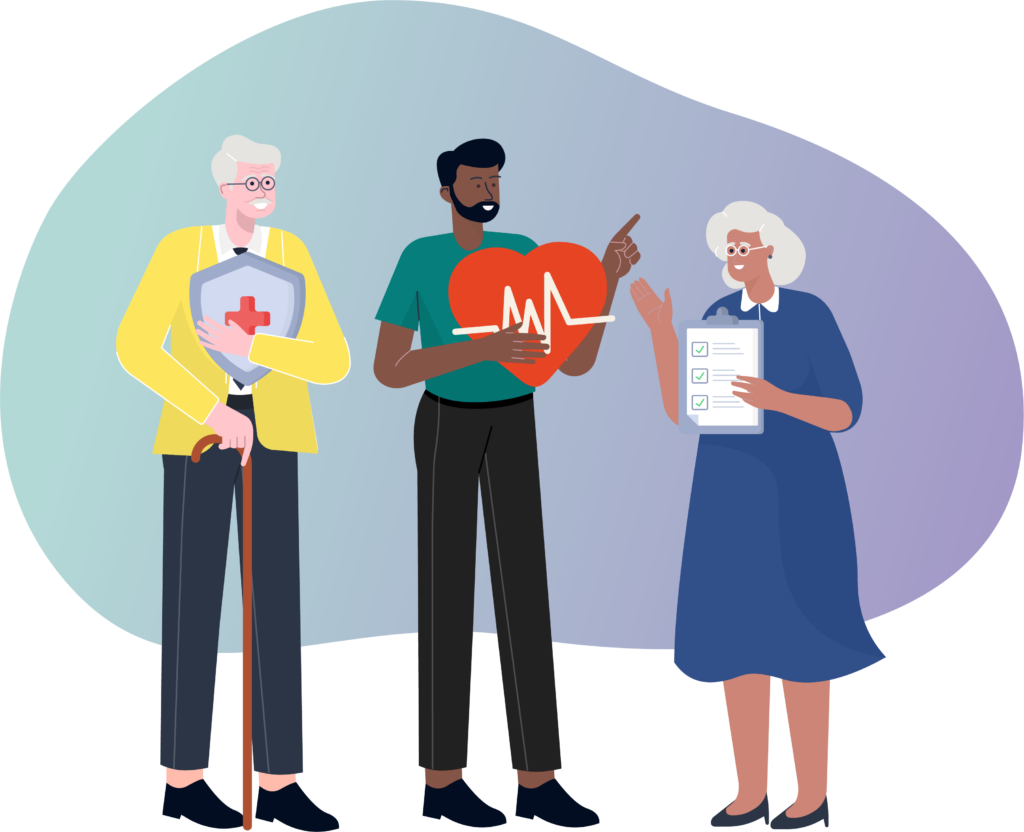What is the meaning of human services? The question seems simple enough.
Though disciplines like social work and counseling have been around since the 19th century, the broader category of human services didn’t emerge as its own field of study until the 1960s.
You may have a comprehensive, up-to-date definition of the term straight out of the latest edition of the leading textbook on the subject. Beyond what a book could tell you, though — how familiar are you and, more broadly, your organization, with the complete meaning of human services?
What specifically does human services entail? What is a human service, and who carries it out? There are whole industries and a large group of professions that are dedicated to the field of human services. The term “quality of life” is often heard in connection with this group of professions, but what exactly does that mean?
Persistent Human Problems
For a hint about what the meaning of human services is, you could look at the issues that these professions exist to address:
- Poverty
- Drug abuse/addiction
- Disease and disability
- Mental illness
- Discrimination
- Accidents and disasters
With a list such as this, you can begin to understand the depth and breadth of the problems that face human services professionals on an exhaustively persistent basis. Insight into the lives of people in these professions can shed some light on the meaning of human services. The best way to gain that insight, naturally, is to get it from the source.
Making Human Connections
Tremendous opportunities exist for mutually beneficial interpersonal connections when human services are delivered face-to-face. There is no substitute for direct contact with others. Human beings need to be seen, heard, listened to, and included as part of a larger unit to be truly free of need. That contact fosters relationships which, when taken together, form the foundation of whole communities and so on throughout the entire human sphere.
The meaning of human services rests in these human connections, which form the definition of the world at large. Whether you are guiding patients through physical therapy or analyzing data to refine public health policy, the ultimate goal that human services professionals are out to achieve is the betterment of the lives of their fellow human beings.
Professionals in Many Forms
So, what makes a human services professional what they are? What kinds of roles do they fulfill within the spectrum of human services? Ranging from drug abuse counselors and mental health aides to social service technicians and child advocates, the common thread among them all is the overall purpose of changing people’s lives for the better. A thorough list of professions would be exhausting to read, but the general fields that comprise the bulk of human services include:
- Social work
- Psychology
- Therapy
- Counseling
- Sociology
- Correctional treatment
- Emergency management
The skill sets that these areas of employment call for run the gamut, as the intensity of what a crisis counselor faces every day differs dramatically from what a policy analyst must regularly endure. However, certain common qualities may be found even amongst the professionals of the many disparate areas of experience within human services. These include:
- Active listening skills
- Attention to detail
- Cultural sensitivity
- Interpersonal skills
- Empathy and compassion
You might say that the qualities shared by the workers in the field help to further identify the meaning of human services. These professionals are careful, sensitive, and compassionate doers who strive to prevent or fix problems, heal the wounds of the injured, and empower people to enjoy rich, rewarding lives. Just like the various kinds of human services, the professionals who provide them come in many forms.
How Technology Eases the Process
As you may imagine, these professionals rely on a host of different processes and technologies to help them do what they do. From big, clunky vehicles to cutting-edge software applications, technology plays a key role in human services. But how do machines and software advance or improve the human element inherent in human services? You might wonder how complex technological processes serve to meet the many intimate human needs of the most vulnerable among us.
The answer lies deep within the meaning of human services. Human services professionals have struggled considerably in their efforts to stay current with recent technological innovations. There are accessible software platforms that, by saving their users’ time, help to facilitate human connection rather than hinder it. Whatever technologies are used in human services, the reason they exist is to serve humans who have need of it. Although no substitute for humanity, technology nonetheless augments the power of human services.
Finding the True Meaning of Human Services
The astonishing recent progress in software technology, such as in cloud computing, has not altered the meaning of human services. Individuals who choose to make their living in human services utilize available technologies for the good of people experiencing hardship; new methods and gadgets may aid the process, but the meaning behind it remains unchanged. Each human services professional has their own singular motivation for doing what they do, although technology is not likely a factor for any one of them.
Discovering your own meaning of human services may involve going outside your comfort zone and into far-flung regions of experience. Breakthroughs in artificial intelligence and machine learning have created unprecedented opportunity in practically all industries and interdisciplinary studies, human services chief among them. Harnessing these technologies for the sake of aiding others is an imperative part of human services. Wherever your journey as a human services professional may take you, its true meaning is that which you give it.
#humanservices #humanservicessoftware #softwarefornonprofit #techforgood #tech4good #nonprofitsoftware #casemanagementsoftware #productivitysoftware #datamanagement




